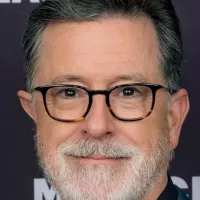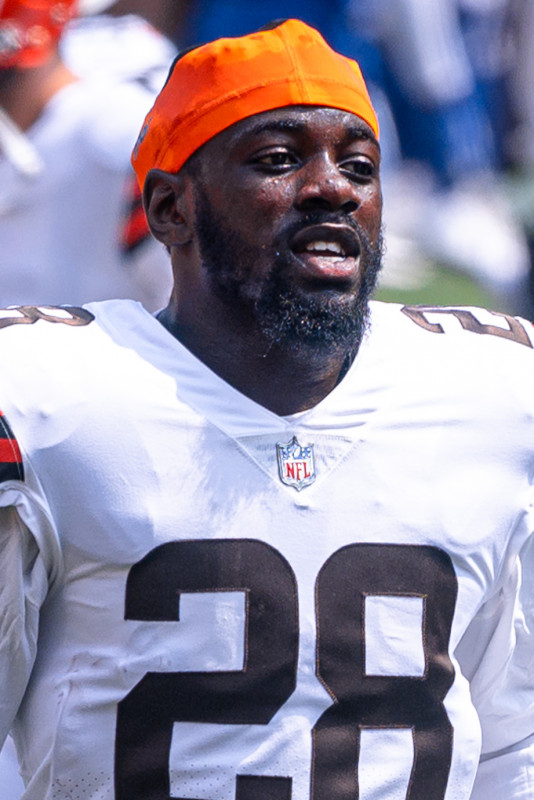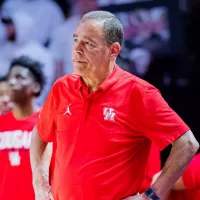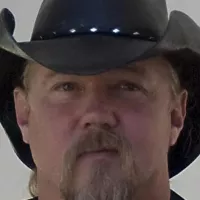Herman Cain was an American businessman known for his involvement in the Republican Party and the Tea Party movement. With a background in mathematics and computer science, he held executive positions at Pillsbury Company and Burger King. Cain's success led to his appointment as chairman and CEO of Godfather's Pizza from 1986 to 1996.
1925: Birth of Cain's Parents
Both of Herman Cain's parents, Lenora Davis Cain and Luther Cain, were born in 1925.
December 13, 1945: Herman Cain is born
Herman Cain was born on December 13, 1945, in Memphis, Tennessee. His parents were Lenora Davis Cain, a cleaning woman and domestic worker, and Luther Cain, a barber, janitor, and chauffeur.
1963: Cain Graduates High School
Herman Cain graduated from S.H. Archer High School in Atlanta in 1963.
1967: Cain Earns Bachelor's Degree from Morehouse College
Herman Cain graduated from Morehouse College with a Bachelor of Science in mathematics in 1967.
1968: Marriage to Gloria Etchison
Herman Cain married Gloria Etchison in 1968, shortly after her graduation from Morris Brown College. The couple went on to have two children, Melanie and Vincent, and eventually four grandchildren.
1971: Cain Receives Master's Degree from Purdue University
Herman Cain earned a Master of Science in computer science from Purdue University in 1971 while simultaneously working as a ballistics analyst for the U.S. Department of the Navy.
1977: Cain Joins Pillsbury
Herman Cain moved to Minneapolis in 1977 to join Pillsbury, marking a significant step in his career in the food industry.
1978: Cain Becomes Director of Business Analysis at Pillsbury
Herman Cain's career at Pillsbury advanced in 1978 when he was promoted to the position of director of business analysis in the company's restaurant and foods group.
1982: Lenora Davis Cain Passes Away
Herman Cain's mother, Lenora Davis Cain, passed away in 1982.
1985: Godfather's Pizza's Ranking Decline
By 1985, Godfather's Pizza had fallen to third place in the pizza chain rankings, reflecting the company's declining performance.
April 1, 1986: Cain Takes Charge at Godfather's Pizza
On April 1, 1986, Herman Cain officially took on the role of president and CEO of Godfather's Pizza, a struggling subsidiary of Pillsbury. He addressed employees with a memorable speech, emphasizing his commitment to turning the company around.
1986: Cain Becomes CEO of Godfather's Pizza
In 1986, Pillsbury appointed Herman Cain as the president and CEO of Godfather's Pizza, where he would make his mark by revitalizing the struggling company.
1987: Cain's Success at Burger King
By 1987, Herman Cain had made a significant impact at Burger King, improving the performance of 400 stores in the Philadelphia area and earning recognition for his leadership.
1988: Cain Leads Godfather's Pizza Turnaround and Buyout
Under Herman Cain's leadership, Godfather's Pizza experienced a significant turnaround by 1988. Despite closing restaurants and streamlining operations, the company returned to profitability. This success culminated in a leveraged buyout, with Cain, COO Ronald B. Gartlan, and a group of investors purchasing Godfather's from Pillsbury.
1994: Cain challenges President Clinton on healthcare
In 1994, as president-elect of the National Restaurant Association, Herman Cain publicly challenged President Bill Clinton regarding the costs and impact of the proposed employer mandate within the Health Security Act, particularly on small businesses.
1995: Cain appointed to the Kemp Commission
Impressed by Cain's performance, likely in a debate setting, Jack Kemp, then a prominent political figure, orchestrated a meeting with Cain and subsequently appointed him to the Kemp Commission in 1995.
1996: Cain Becomes CEO of the National Restaurant Association
After leaving Godfather's Pizza, Herman Cain moved to Washington, D.C., in 1996 to serve as the CEO of the National Restaurant Association, a prominent trade and lobbying group for the restaurant industry.
1996: Cain Departs Godfather's Pizza
Herman Cain left his position as CEO of Godfather's Pizza in 1996 after successfully leading the company to profitability.
1996: Cain serves as senior economic advisor for Bob Dole campaign
Herman Cain took on the role of senior economic advisor for Bob Dole's presidential campaign in 1996.
1996: Cain Receives Horatio Alger Award
Herman Cain was honored with the prestigious Horatio Alger Award in 1996, recognizing his achievements and commitment to the principles of hard work and perseverance.
1999: Cain Returns to Omaha
Following his time leading the National Restaurant Association, Herman Cain returned to Omaha for a year in 1999.
1999: Cain's Time with the National Restaurant Association Ends
Herman Cain concluded his role as CEO of the National Restaurant Association in 1999, marking the end of his tenure advocating for the restaurant industry.
1999: Cain's Tenure as CEO of the National Restaurant Association Ends
Herman Cain's time as the head of the National Restaurant Association came to an end in 1999.
2000: Cain launches brief Republican presidential bid
Herman Cain made a brief foray into presidential politics with a run for the Republican nomination in 2000. He later acknowledged that this campaign was more about making a statement than a serious bid for the presidency, and he eventually endorsed Steve Forbes.
2000: Cain Moves Back to Atlanta
In 2000, Herman Cain decided to move back to his hometown of Atlanta, Georgia.
2004: Cain runs for U.S. Senate in Georgia
Herman Cain ran for a U.S. Senate seat in Georgia in 2004, aiming to fill the vacancy left by Democrat Zell Miller's retirement. He competed in the Republican primary against congressmen Johnny Isakson and Mac Collins, focusing his campaign on conservative values. He ultimately lost to Isakson.
2005: Cain joins Americans for Prosperity
Beginning in 2005, Herman Cain joined the political advocacy group Americans for Prosperity (AFP), working alongside Mark Block. This association would later prove significant during Cain's 2012 presidential run.
2005: Luther Cain Passes Away
Herman Cain's father, Luther Cain, passed away in 2005.
2006: Cain voices radio ads encouraging minority Republican vote
In 2006, Herman Cain lent his voice to a series of radio advertisements aimed at encouraging people of color to consider voting Republican. These ads were financially supported by America's PAC, founded by J. Patrick Rooney.
2006: Cancer Diagnosis and Remission
In 2006, Herman Cain was diagnosed with Stage IV colon cancer that had metastasized to his liver. Despite a 30 percent chance of survival, he underwent surgery and chemotherapy, which led to remission.
2008: Cain Begins Hosting "The Herman Cain Show"
Herman Cain's foray into radio began in 2008 when he started hosting "The Herman Cain Show" on WSB, a talk radio station based in Atlanta.
2009: Cain Featured in "An Inconvenient Tax"
Herman Cain appeared in the 2009 documentary "An Inconvenient Tax," which explored issues related to taxation.
December 2010: Cain announces presidential aspirations
Following the 2010 midterm elections, Herman Cain publicly shared his intention to run for president, indicating a high likelihood of pursuing the office. He gained early recognition as a potential GOP nominee.
2010: Financial Disclosure
During his 2011 campaign, financial disclosures revealed that in 2010, Cain's combined income ranged from $1.1 to $2.1 million, with his estimated wealth between $2.9 and $6.6 million.
January 12, 2011: Cain forms exploratory committee for presidential run
Herman Cain took a formal step towards a presidential bid by forming an exploratory committee on January 12, 2011.
February 2011: Cain Steps Down from "The Herman Cain Show"
Herman Cain's time hosting "The Herman Cain Show" on WSB came to an end in February 2011.
May 2011: Cain Announces Presidential Candidacy
Herman Cain announced his candidacy for the 2012 presidential election in May 2011, entering the race as a Republican.
July 2011: Cain unveils 9-9-9 tax plan
In July 2011, Herman Cain introduced his signature 9–9–9 tax plan, a simplified tax system that proposed replacing the existing tax code with a 9% business transactions tax, a 9% personal income tax, and a 9% federal sales tax. This plan, while attracting attention for its simplicity, also drew criticism from some economists and fellow candidates.
October 2011: Cain gains traction in Republican straw polls
Herman Cain experienced a surge in popularity in late September and early October 2011, securing victories in several Republican straw polls, including those of the Florida Republican Party, TeaCon, and the National Federation of Republican Women's Convention. GOP pollster Frank Luntz highlighted Cain's likability as a significant factor in his rising appeal.
October 2011: Sexual harassment allegations emerge against Cain
In a damaging turn of events, Politico published a report in late October 2011, revealing that Herman Cain faced accusations of sexual harassment and misconduct from two women who alleged the incidents occurred during his tenure as CEO of the National Restaurant Association in the late 1990s. Two more women came forward with similar allegations subsequently, leading to settlements from the organization, and impacting Cain's campaign.
November 28, 2011: Allegation of affair surfaces
On November 28, 2011, an allegation of a 13-year extramarital affair between Herman Cain and a woman named Ginger White surfaced, adding another layer of controversy to his already troubled campaign. White alleged that the affair ended just prior to Cain's announcement of his presidential bid.
November 30, 2011: Cain denies sexual harassment and adultery allegations
Amid mounting allegations, Herman Cain publicly denied all accusations of sexual harassment and adultery during an event in Dayton, Ohio, on November 30, 2011, but the damage to his campaign was significant.
December 3, 2011: Cain suspends presidential campaign
On December 3, 2011, Herman Cain officially suspended his presidential campaign. The widespread consensus attributed this decision to the significant damage inflicted by the sexual harassment allegations that had plagued his campaign for weeks.
December 21, 2011: Cain named "most covered candidate" by Pew Research Center
Despite the controversies and eventual suspension of his campaign, Herman Cain was recognized as the "most covered candidate" among Republicans in 2011 by a Pew Research Center report released on December 21, 2011, highlighting the significant media attention he garnered.
2011: Financial Disclosure
During his 2011 campaign, financial disclosures revealed that in 2011, Cain's combined income ranged from $1.1 to $2.1 million, with his estimated wealth between $2.9 and $6.6 million.
January 4, 2012: Cain's Solutions Revolution
On January 4, 2012, Herman Cain launched the "Cain's Solutions Revolution" to promote his 9–9–9 Plan and garner support from members of Congress. This movement aimed to keep the momentum of his economic plan going even after he ended his presidential candidacy.
January 19, 2012: Cain Returns to WSB
Herman Cain returned to WSB radio in Atlanta on January 19, 2012, this time providing daily commentaries and occasionally filling in for other hosts.
January 20, 2012: South Cain-Olina Primary Rally
On January 20, 2012, Herman Cain spoke at Stephen Colbert's "Rock Me Like a Herman Cain: South Cain-Olina Primary Rally," drawing a crowd of 3,000-5,000, marking the largest GOP presidential primary rally at that point.
May 15, 2012: Endorsement of Mitt Romney
Herman Cain endorsed Mitt Romney for president on May 15, 2012. Following Romney's loss to President Obama, Cain expressed disillusionment with the Republican Party, believing it no longer represented conservative interests and advocated for a "legitimate third party."
2012: Sexual misconduct allegations surface during presidential campaign
During Herman Cain's 2012 presidential campaign, allegations of sexual misconduct from his time as CEO of the National Restaurant Association came to light, ultimately impacting his campaign.
2012: Cain's 2012 presidential campaign
Herman Cain ran for President of the United States in 2012.
2012: Cain's AFP ties influence 2012 campaign
Herman Cain's prior work with Americans for Prosperity (AFP) had a notable influence on his 2012 presidential campaign, as several AFP employees, including Mark Block as campaign manager, joined his team. Notably, Rich Lowrie, who played a key role in developing Cain's 9–9–9 tax plan, was previously on the AFP board.
2012: Tea Party Express Response to State of the Union
In 2012, Herman Cain was chosen by the Tea Party Express to deliver their response to President Obama's State of the Union address. He criticized the address for lacking impactful ideas for job and economic growth.
January 21, 2013: Cain Takes Over Boortz's Show
Following Neal Boortz's retirement, Herman Cain took over his radio talk show on January 21, 2013, continuing the program's legacy.
February 15, 2013: Cain Joins Fox News as Contributor
Herman Cain joined Fox News Channel as a contributor on February 15, 2013, further expanding his presence in conservative media.
December 2016: Cain's Show Dropped from Westwood One
In December 2016, "The Herman Cain Show" was removed from the Westwood One Radio Network's lineup, replaced by "The Chris Plante Show." However, the show continued to air on a limited basis through Cox Radio, WSB's parent company.
March 2019: Cain Appears on "Watter's World"
Herman Cain made an appearance as a panelist on an episode of "Watter's World" in March 2019.
April 4, 2019: Trump nominates Cain to Federal Reserve Board
On April 4, 2019, President Donald Trump announced his intention to nominate Herman Cain to a vacant seat on the Federal Reserve Board, a decision met with scrutiny due to past sexual misconduct allegations against Cain.
April 22, 2019: Cain withdraws from Federal Reserve nomination
Facing mounting scrutiny and likely insufficient votes, Herman Cain withdrew his name from consideration for the Federal Reserve Board seat on April 22, 2019.
July 30, 2020: Death
Herman Cain passed away on July 30, 2020, at the age of 74 due to complications from COVID-19. His death sparked controversy as his attendance at the 2020 Tulsa Trump rally was linked to his diagnosis.
July 30, 2020: Herman Cain passes away
Herman Cain passed away on July 30, 2020. He was an American businessman and political activist known for his work in the Republican Party and the Tea Party movement.
2020: Cain Supports Trump's Re-election
Herman Cain remained active in Republican politics, serving as a co-chairman of Black Voices for Trump during the 2020 election cycle.
2020: Cain co-chairs Black Voices for Trump
Herman Cain served as a co-chairman for the Black Voices for Trump coalition during the 2020 election cycle.
2020: COVID-19 Diagnosis and Controversy
Throughout 2020, Herman Cain publicly opposed mandates for masking and social distancing during the COVID-19 pandemic. On June 20, he attended the Tulsa Trump rally without a mask, and later tested positive for COVID-19 on June 29th. Despite speculation about the rally's contribution to his diagnosis, his staff maintained that the source of his infection remained uncertain.
2023: Mark Meadows Remark
In 2023, Cassidy Hutchinson revealed in her book that upon learning of Herman Cain's passing, Mark Meadows had stated, "we killed Herman Cain," alluding to Cain's attendance at the 2020 Tulsa rally and subsequent COVID-19 diagnosis.
Mentioned in this timeline

Donald John Trump is an American politician media personality and...
Fox News Channel FNC is a conservative American news and...

Bill Clinton the nd U S President - served as...
Burger King founded in as Insta-Burger King is a global...

Stephen Colbert is an American comedian writer producer political commentator...

Washington D C is the capital city and federal district...
Trending

3 minutes ago Rajah Caruth shines at JR Motorsports; Mayer takes pole; Mears avoids crash.

3 minutes ago Yaxel Lendeborg's life story, Michigan rise, and draft prospects are revealed.
1 hour ago Alabama Basketball Faces LSU: A Crucial Road Matchup and Maturity Test Looms

1 hour ago Jeremiah Owusu-Koramoah's NFL future uncertain due to possible career-ending injury at 26.

2 hours ago Kelvin Sampson's Coaching Philosophy and Houston Cougars' SLAM Magazine Cover

2 hours ago Trace Adkins Hints at Retirement with 2026 Tour Potentially Being His Last
Popular

Jesse Jackson is an American civil rights activist politician and...

Barack Obama the th U S President - was the...

Ken Paxton is an American politician and lawyer serving as...

Bernie Sanders is a prominent American politician currently serving as...
Randall Adam Fine is an American politician a Republican who...

Michael Joseph Jackson the King of Pop was a highly...
